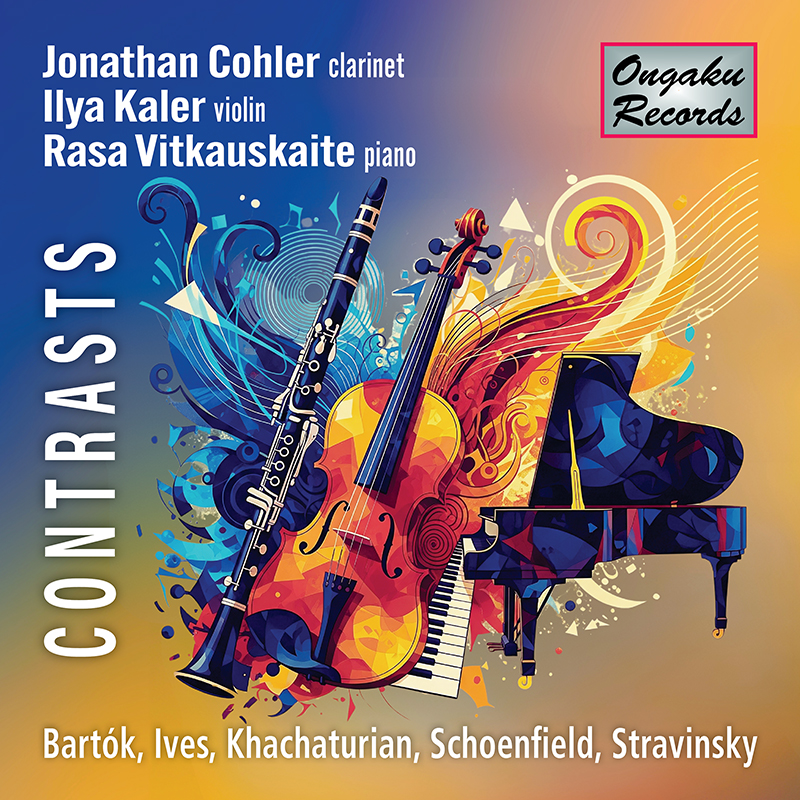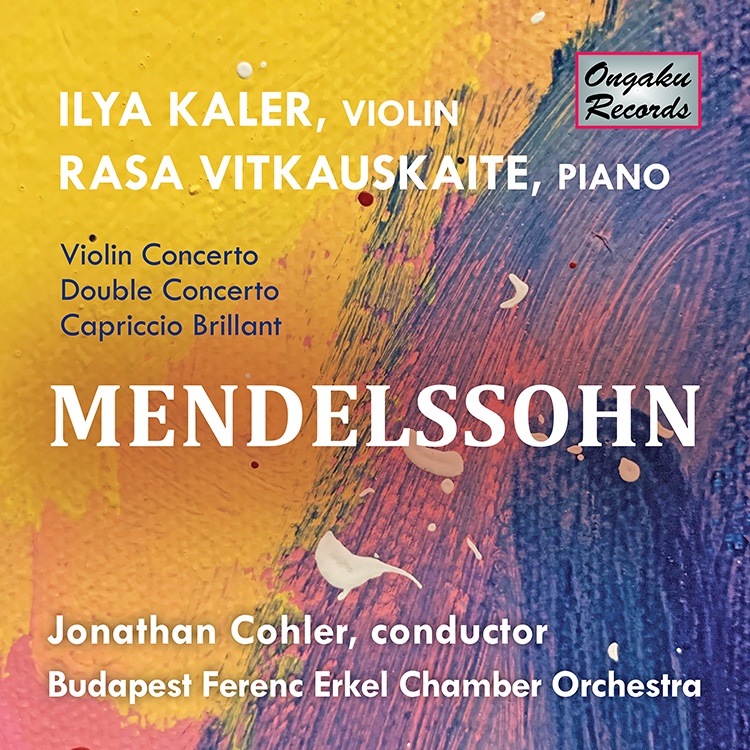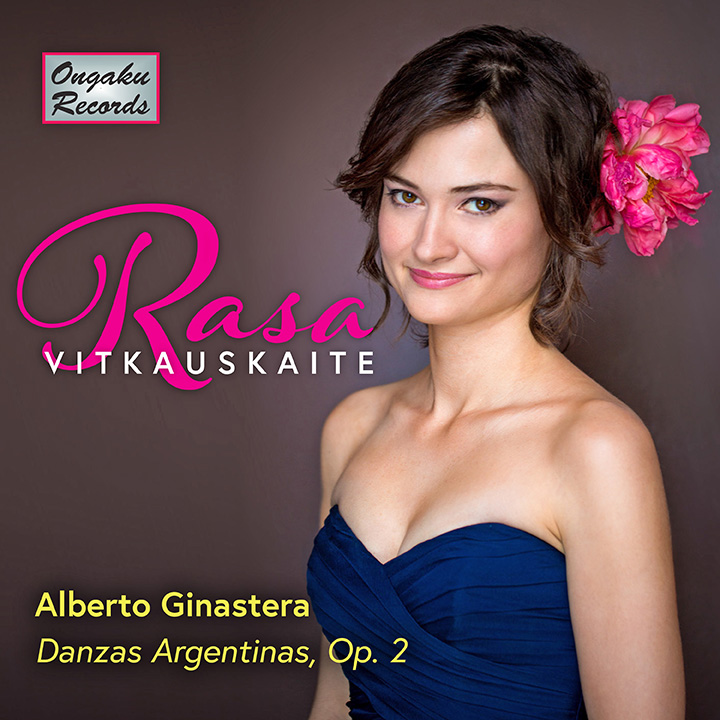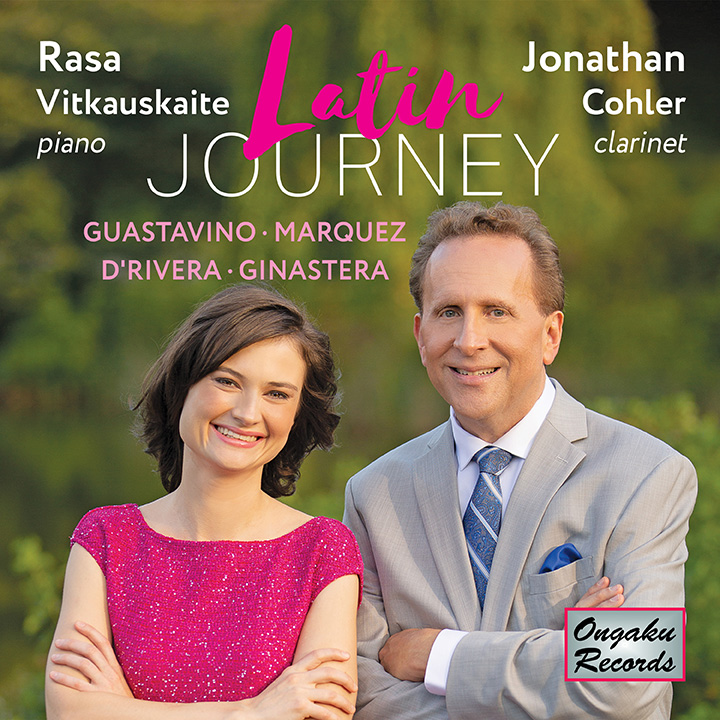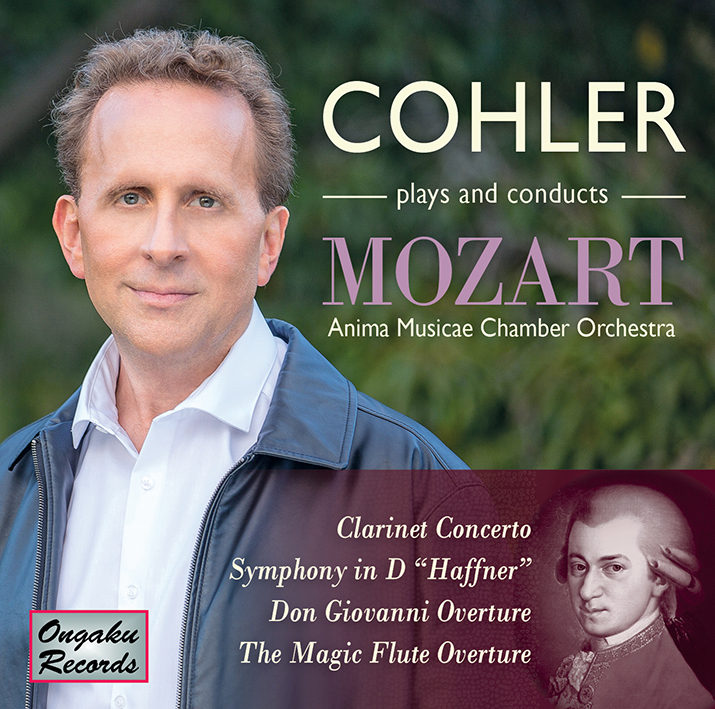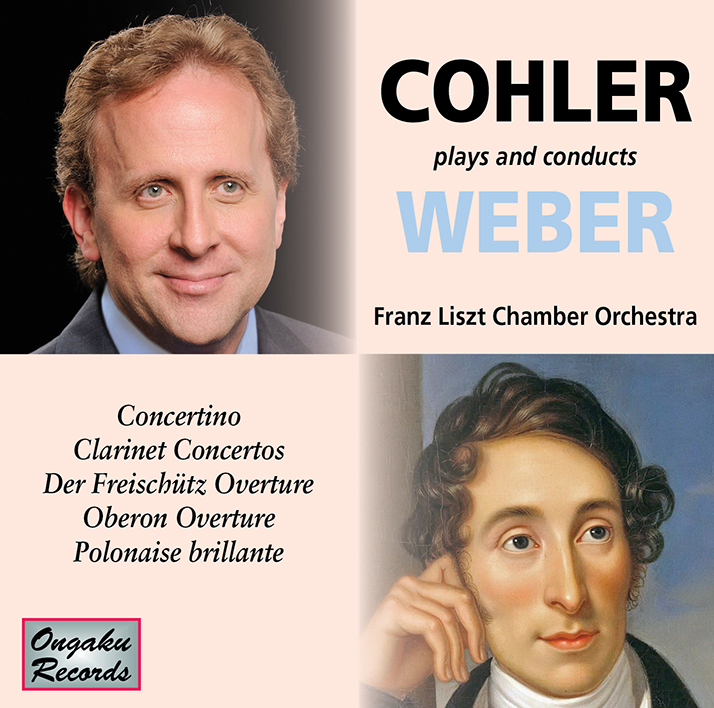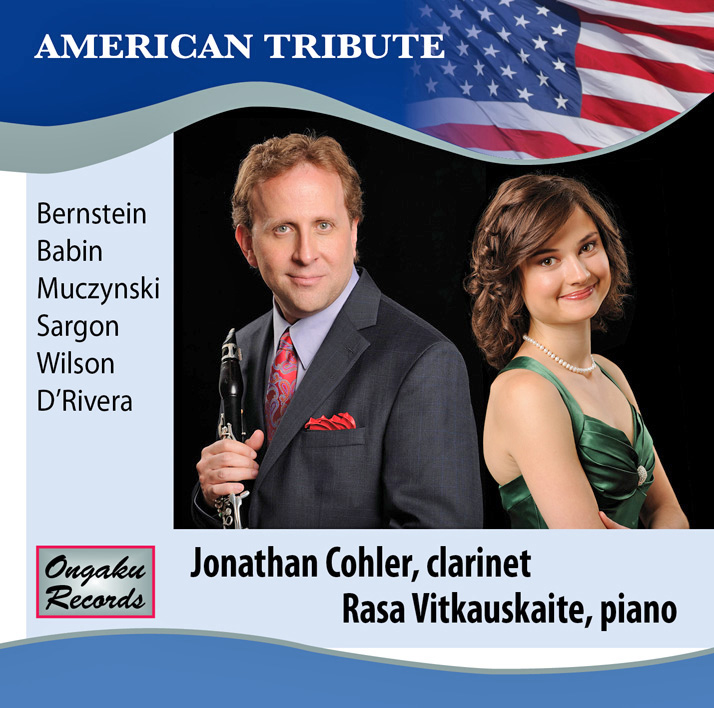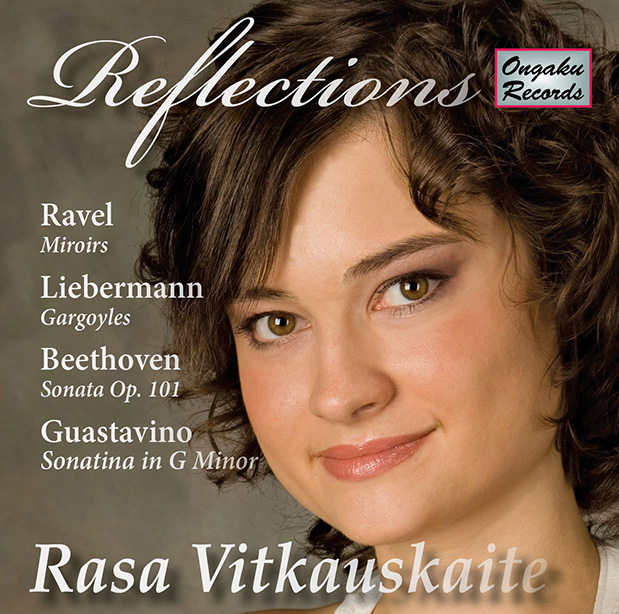“As pianist Rasa Vitkauskaite points out in her extensive and informative program notes to this new release, the strongest link from Mozart to Beethoven wasn’t personal. It was the piano and the revolution in piano concertos that Mozart brought about.
Vitkauskaite makes a strong case for this link in two outstanding performances... Ironically, the fashion for period performance knocked both concertos off their heroic pedestals—today one is as likely to hear tinkly Beethoven as tinkly Mozart.
Vitkauskaite and conductor Jonathan Cohler bring a welcome restoration—these are large-scaled performances filled with musical passion... She plays the solo part as boldly as Rudolf Serkin, and he conducts with more dramatic force than George Szell in their Columbia Records account...
If you agree with their approach, as I wholeheartedly do, Vitkauskaite and Cohler deliver an ideal Mozart performance, abetted by beautiful playing from the Franz Liszt Chamber Orchestra and up-to-date engineering that combines inner detail with overall impact. The full dynamic range of the piano is vividly conveyed, as is the dynamic range of Mozart’s score... [In the Beethoven] Cohler offers an orchestral part that is fully symphonic and beautifully shaped. He is best known as an acclaimed clarinetist, but his podium skills are impressive...
Serkin again comes to mind in his Beethoven Third Concerto with Bernstein and the New York Philharmonic from the 1960s, a particular favorite of mine. This new reading rivals it for exuberance, high energy, charisma, and the heroic spirit of Beethoven’s middle period. The first-movement cadenza is thrilling in Vitkauskaite’s hands. I hasten to add that she and Cohler do not cut Mozart and Beethoven from the same cloth but attend to the characteristic style of each... the pianist’s legato line... is as exemplary as the rest of her technique...
I had no expectations... that this new release would be quite as superb as it turned out to be. Strongly recommended. ”
“Released in honour of Beethoven’s 250th birthday anniversary, this album also honours the long and beloved tradition of the classical piano concerto... extensive and thoughtful liner notes... Vitkauskaite’s performance is buoyant... Whether it is the poetic opening of Mozart’s concerto or the relentless dancing bounce in the concluding movement of the Beethoven, Vitkauskaite has a strong presence and willful execution... She is capable of bringing forth the intensity and tension while still retaining the lyricism of the melodies... exciting... new and surprising. Jonathan Cohler is a perfect collaborator to Vitkauskaite, directing both orchestras with clarity and conviction.”
“...among the most scholarly, thoroughly documented, reference-cited, and footnoted... CD booklet I’ve seen...
...in the Mozart, composed in 1785, she glimpses in her reading the swirling minor-key episodes that would come two years later in Don Giovanni. In other words, Vitkauskaite grasps, appreciates, and projects the operatic element in the concerto’s music...
While personal longtime favorites in Mozart’s piano concertos have been Alfred Brendel with Neville Marriner and the Academy of St. Martin in the Fields, Murray Perahia with the English Chamber Orchestra, and Robert Casadesus with Szell in a mix of recordings, some with the Cleveland Orchestra, some with the Columbia Symphony Orchestra, I find that Vitkauskaite’s way with Mozart’s No. 20 is every bit as probing, dramatic, and satisfying as those named above...
... [Vitkauskaite] brings [several] distinctions to her performance of the Beethoven, chief among which—as I noted in a review of her solo debut album in 38:2—are her penetrating musical insight and her ability to commune with the composer and her audience in a way that feels conversational...
Beyond Vitkauskaite’s playing, which, by all measures, attains the highest degrees of both technical finish and interpretive integrity, what adds immeasurably to these performances and makes them special is the leadership from the podium of Jonathan Cohler. Whether with the Franz Liszt Chamber Orchestra in the Mozart or the Anima Musicae Chamber Orchestra in the Beethoven, Cohler sees his role and that of the orchestra in these works not as accompanists, but as partners fully engaged in an equal and balanced dialogue with the soloist...
Regardless of how many recordings of these two concertos you already have on your shelf, I’d strongly urge you to make room for this one. ”
“...major performances worthy of standing with the finest recordings of both pieces... Textures are transparent, woodwind detail (particularly important in later Mozart concertos) is always given appropriate focus.
Vitkauskaite’s substantial program notes make her scholarship credentials clear, and she writes very well about her approach to ornamentation in the Mozart. Her ornamentation is lovely...The second movement is a fine example of its tasteful, effective use.
...Her playing in both works combines the best elements of boldness and lyricism...
The fact that pianist and conductor have an established musical partnership is an important plus here. There is a strong, sympathetic give-and-take matching inflections and phrase-shaping. In both concertos the piano is part of the ensemble as much as a solo voice or competitor with the orchestra...
Pianist and conductor also find cohesion between the heroic and intimate elements of both pieces. After a forceful conclusion to the first movement of the Beethoven, Vitkauskaite begins the second movement with hushed beauty. Cohler brings the orchestra in with quiet discretion, then builds to something more weighty, only to fade out before the next quiet piano entrance. In both works the dynamic shading and tempo adjustments are very thoughtfully graded in a way that maintains architectural unity.
Everything about this disc is praiseworthy. The vivid performances, the warm recorded sounds, and the exceptional program notes all add up to an enthusiastic recommendation.”
—Henry Fogel, Fanfare
“...extensive, detailed, and informative liner notes...Cohler and the Franz Liszt CO embrace the D-minor Concerto’s kinship with Mozart’s opera Don Giovanni, and in particular, the imposing and fateful Stone Guest, who drags the title character to hell. Cohler offers a lean, propulsive, and fiery view of the score’s outer movements, as well as the tempestuous middle section of the central Romance. But Cohler is also attentive to the Concerto’s moments of lyricism and repose, especially in the second movement...
...[Cohler and Vitkauskaite] appear to be simpatico artists. Vitkauskaite fully embraces Cohler’s dynamic view of the Mozart 20. Vitkauskaite’s technical assurance, seamless legato, and singing tone all evoke descriptions of Mozart himself at the keyboard. Vitkauskaite’s marvelous, imaginative ornamentation in the slow-tempo Romance, and her captivating brief improvisation in the finale’s Eingang, provide additional, considerable pleasure. Together, Cohler and Vitkauskaite bring us a Mozart D-minor of considerable merit, one that can hold its own in a very competitive discography...
The Beethoven Third is on a similarly high plane. Once again, Vitkauskaite plays with assurance and fire, as well as a bit more flexibility of phrasing... Vitkauskaite and Cohler have the measure of this work, too. The recorded sound offers a closeup perspective of the performers... detail, richness, and appropriate balance between soloist and orchestra... the new Ongaku disc is a welcome addition. Recommended.”
—Ken Meltzer, Fanfare
“...I’m more inclined toward performers that do... everything very well, very subtly, and with absolute commitment and confidence. Rasa Vitkauskaite’s performance of two of the cornerstones of the piano concerto repertoire does all these things, as does Jonathan Cohler’s conducting. This disc is a very satisfying experience from start to finish.
Vitkauskaite’s mastery of these two concertos is apparent even without listening to the recording; this disc includes one of the most extensive and well researched program booklets I have in my library. Vitkauskaite wrote the program notes, which go beyond the usual biographical information and anecdotes about the circumstances of the works’ composition and premieres to include discussions of performance practice, piano construction, and the psychological implications of minor keys... her Beethoven is sonorous to the very depths of the piano, whereas her sound in the Mozart is simply full... I was in no way surprised by this contrast; Mozart’s piano works are more delicate than Beethoven’s, and stern volatility is a hallmark of Beethoven’s style. But Vitkauskaite’s discussion of the difference in action between English and Viennese pianos of the early 1800s (and her relaying of Reicha’s anecdote about Beethoven breaking string after string while playing the very Mozart concerto on this recording) adds another layer to the familiar contrast between the two composers. Beethoven preferred the heavier action and pedal mechanism of English pianos, and Vitkauskaite acknowledges this preference in her playing. Equally learned is Vitkauskaite’s approach to ornamentation...Vitkauskaite’s embellishments are very attractive and absolutely convincing...
...due to Jonathan Cohler’s conducting... the orchestral sound in these performances is extremely vivid. The strings are marvelously rich at the opening of the Mozart, yet the horn cuts through with absolute clarity. The recording also conveys the orchestra with a keen spatial sense: I heard the interplay between winds and strings in both concertos as precisely located, though my listening system is nothing fancy.
...she takes a consistently vocal approach to Mozart’s melodic writing, as in her broadening of the tempo slightly to accommodate wide leaps in the solo measures before the third movement’s cadenza. She is conversational and a little impetuous in her rubato, as in her improvisatory approach to the first theme’s triplet development in the first movement of the Beethoven. And she is equally comfortable as a soloist (as in her assertive entrance in the first movement of the Mozart) and as a member of the orchestral ensemble (as when she allows a series of broken octaves to blend into the overall texture as the Beethoven concerto’s first movement builds toward its recapitulation). And one more fine choice in conducting: in the Beethoven, Cohler takes the rondo’s C section at a noticeably slower tempo than the rest of the movement, treating it as a more formal rondo than many conductors.
...This disc is a very welcome addition to my library and offers a beautifully polished, mature, intelligent rendering of these beloved concertos.”
—Myron Silberstein, Fanfare
“artistry of poetic and observant sensitivity…a musician with a keen ear for colour and structure…vital glowing performances…illuminating and nuanced…Vitkauskaite finds a fine balance between lyricism and buoyancy [in the Beethoven], applying judicious flexibility to lines while maintaining narrative cohesion.”
—Gramophone
“Vitkauskaite has established an enviable reputation as an intelligent performer who injects insight into every note and whose phrasing is nigh on perfect… breathtakingly beautiful and it is all you can do not to hear it again immediately… she can voice every emotion and every state inferred from gentle lullaby-like phrasing to volcanic outbursts… extremely satisfying and thrillingly executed...”
—MusicWeb International
CLICK HERE for track details
